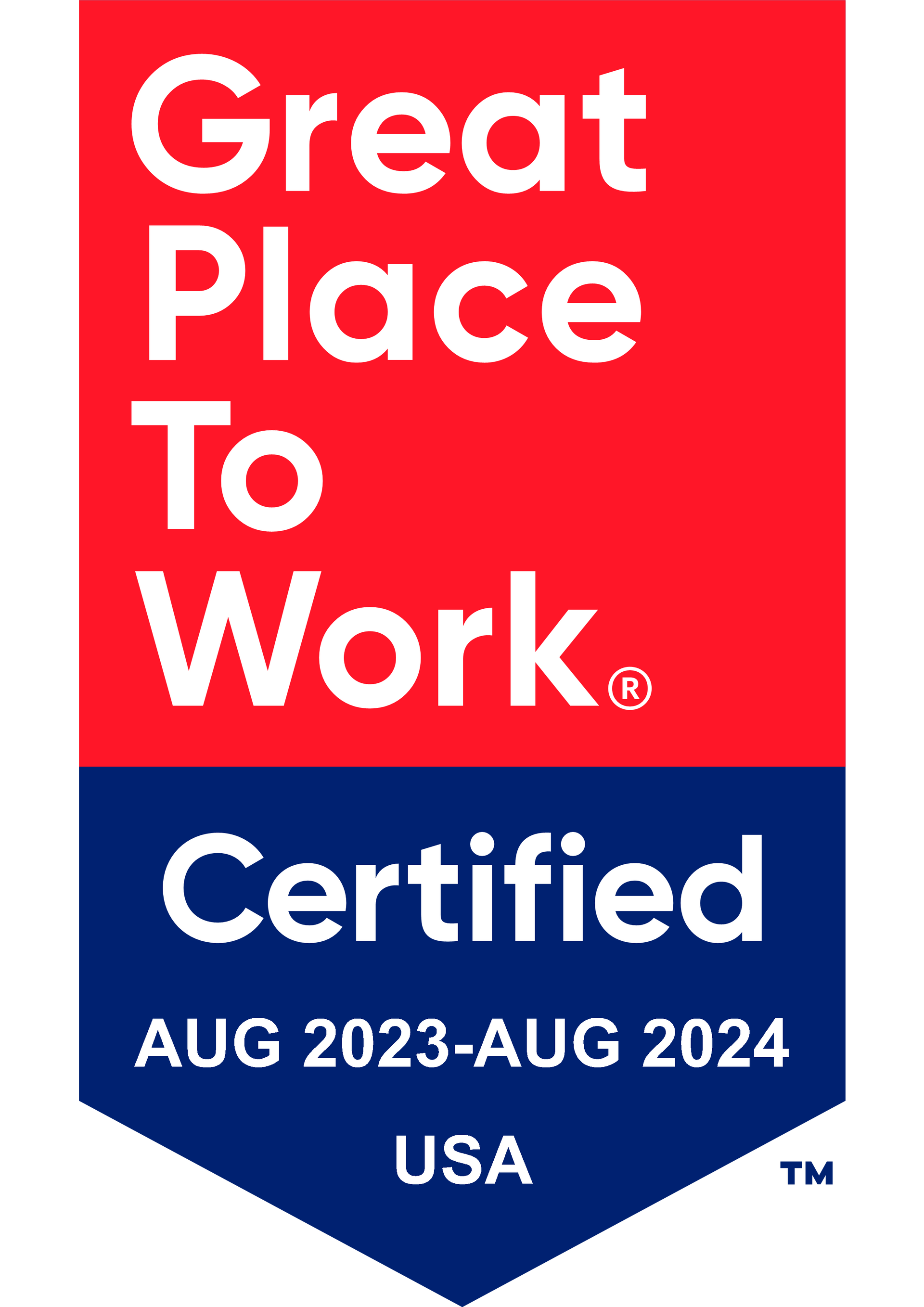
How Many Employees Do You Need to Qualify for Group Insurance?
The Affordable Care Act (ACA) does not require small businesses to offer health insurance to employees. Even so, most businesses would like to provide health insurance to their employees. It is a good practice to follow, as group health benefits are a critical part of an employer’s employee value proposition.
Employees across all generations continue to report medical coverage as a top-tier benefit they consider when searching for jobs, researching companies, and determining whether to stay with their current employer. Employees don’t want to stress over medical expenses that could lead to financial hardships.
In a 2019 Stress in America report, two in five American adults reported having challenges when paying for past medical bills.
The Society for Human Resource Management (SHRM) also reports that 90% of employees say benefits have an impact on their overall job satisfaction. The same SHRM report indicated that one-third of participants considered leaving their current employer within the following 12 months for an organization with better benefits.
Further, according to a study of 2,000 people conducted by research company Fractl, 88% of respondents indicated they would consider leaving a high-paying job with poor health benefits for a low-paying one with good health benefits.
These stats support the fact that offering health and welfare benefits to employees helps to attract and retain top talent in any job market — especially in a competitive one where candidates have options. Health benefits also support employee well-being and help reduce stress, which can, in turn, increase work productivity.
Large businesses generally have an easier time acquiring traditional group health insurance plans for their employees. They easily meet group health insurance qualification requirements and have the bargaining power that many small businesses do not when it comes to negotiating plan pricing and options.
Since 2015, without cost adjustments made, healthcare costs have increased for large employers by an average of 6% per year, and 5% on average with cost adjustments made for the year, as reported in the 2020 National Business Group on Health’s Large Employers’ Health Care Strategy and Plan Design Survey. It seems evident that healthcare costs will continue to rise. Many small businesses cannot afford such increases.
Because they do not have the privilege of bargaining power, the cost of healthcare for small businesses is typically higher than it is for large businesses. As previously shared, the National Conference of State Legislatures reports that small businesses pay anywhere from 8% to 18% more than large organizations for similar health plans.
Fortunately, it is still possible for small businesses to acquire affordable and quality group health insurance for their employees. Keep in mind, however, that it does take a fair amount of effort, research, and perseverance to identify and develop a platform to meet both business’ and the employees’ needs.
KBI has been helping businesses of all sizes acquire group health insurance for years. Below are some frequently asked questions geared toward small businesses and group health insurance options.
WHAT ARE TRADITIONAL GROUP HEALTH INSURANCE OPTIONS FOR SMALL BUSINESSES?
Traditional small group health insurance can be purchased through your health insurance broker or your state-run Small Business Health Options Program (SHOP) marketplace. Premium and plan options vary between states and insurance providers.
HOW MANY EMPLOYEES DO YOU NEED TO QUALIFY FOR GROUP INSURANCE?
Access to traditional small group health insurance requires small businesses to have between one and 50 employees in most states. Some states require a minimum of two employees and a maximum of 50. To determine what the specific requirements are in your state, access your state’s business or Secretary of State website, or speak with your insurance broker for answers and clarification for your area.
Organizations with more than 50 employees qualify for group insurance and need to apply for traditional large group coverage. They will need to meet the minimum large group health insurance standards and coverage reporting requirements.
WHAT TYPE OF EMPLOYEES ARE REQUIRED TO QUALIFY FOR SMALL GROUP COVERAGE?
Organizations that qualify for small group coverage meet the requirements for the types of employees required, as well. A small business must consider the following to be eligible for traditional small group coverage:
- At least two employees are required to enroll in group health coverage. One “employee” can be the owner or employer.
- The second employee cannot be another owner or employer. Nor can it be a spouse, family member, partner, seasonal worker, temporary worker, or contractor.
- Full-time employees are considered employees that qualify businesses for group coverage. They also qualify for coverage when the business offers benefits to its employees. A full-time employee is classified as an employee who works an average of 30 or more hours per week.
- Full-time employees who work a combined average of 30 hours per week or more, equating to one full-time employee’s hours, can also be used to qualify a small business for group coverage.
- Employers can offer group health benefits to seasonal and temporary workers, though these employment classifications do not count towards the employee count that qualifies a small business for group health insurance.
- Employees used to qualify a small business for group coverage must pass the common-law test, which means that the small business has control over the way the employee does his or her work, as well as the specific work the individual does.
ARE THERE ADDITIONAL RULES FOR SMALL GROUP COVERAGE?
For a small business to qualify for traditional small group coverage, 70% of its full-time employees must be enrolled in the group plan. An exception to the rule is possible if the enrollment of the small business for group health insurance occurs between Nov. 15 and Dec. 15 of any given year. During this window, employers are not subject to the 70% rule. It may be advantageous for businesses concerned that they might not meet the 70% enrollment requirement to enroll for small group health coverage during this time.
WHAT TAX CREDITS ARE AVAILABLE TO ME FOR OFFERING SMALL GROUP HEALTH INSURANCE?
The Small Business Health Care Tax Credit is possible for employers who paid employee health insurance premiums purchased through a qualifying SHOP Marketplace plan. The tax credit offered is up to 50% of the premiums paid for qualifying health insurance coverage. To be eligible for the tax credit, employers must have paid 50% of the employee premium, have less than 25 full-time equivalent employees, and meet the average annual wage cap, which was less than $55,000 in 2019. The tax credit is only available for two consecutive years.
IS TRADITIONAL GROUP HEALTH INSURANCE BEST FOR MY BUSINESS?
Not all small businesses will qualify for traditional small group health insurance plans. Even if you do qualify for traditional small group coverage, you may decide that it is not the right type of coverage for your business.
Aside from not meeting the minimum requirements, many businesses opt not to go with traditional group health coverage for several reasons, including:
- The small business can’t afford the plan premiums offered.
- The policy options don’t meet the benefits needs of the entire workforce, making it necessary to look at other health and benefits options that support a diverse employee group.
- The business has employees in multiple states, which poses problems with group plan requirements and options.
- The business doesn’t have the resources to administer and meet the changing regulatory and reporting requirements in-house for a traditional group health plan.
Fortunately, there are several other health and welfare options for small businesses to consider outside of traditional small group health plans.
WHAT ARE OTHER HEALTH INSURANCE OPTIONS FOR SMALL BUSINESSES?
Association Health Plans (AHPs), Qualified Small Employer Health Reimbursement Arrangements (QSEHRAs), individual or group coverage Health Reimbursement Arrangements (HRAs), and taxable stipends are options for small businesses that choose not to go with traditional group health plans.
ASSOCIATION HEALTH PLANS (AHPS)
AHPs are defined by the Department of Labor (DOL) as “group health plans that employer groups and associations offer to provide health coverage for employees.” In mid-2018, the DOL expanded access to AHPs, which made it easier for small businesses, including sole proprietors and single-member businesses, to gain access to affordable, quality healthcare. AHPs provide the opportunity for small businesses to group together based on geography or trade, giving them bargaining power akin to large businesses.
AHPs are required to abide by the majority of ACA requirements and provisions of the Employee Retirement Income Security Act (ERISA), except for offering essential health benefits. These include pediatric care, laboratory services, prescription drugs, preventative care, mental health and substance abuse, emergency services, hospitalizations, outpatient services, rehabilitative and habilitative devices and services, and pregnancy, maternity, and newborn care.
AHPs are not required to offer these 10 essential health services; accordingly, they are given more leeway in the types of benefits plan options they can offer. These options include skinny plans, which are less expensive than comprehensive plans.
QUALIFIED SMALL EMPLOYER HEALTH REIMBURSEMENT ARRANGEMENT (QSEHRA)
HRAs have gained in popularity. The function of an HRA is similar to that of a Health Savings Account (HSA), where employees can use employee- or employer-funded contributions to pay for approved health-related expenses tax-free. HRAs are primarily employer-funded accounts set up for employees to pay for approved medical expenses. There are different HRAs from which employers can choose based on meeting specific criteria set by the Internal Revenue Service (IRS).
A QSEHRA is customizable and available to employers with less than 50 employees. The IRS sets reimbursement limits for a QSEHRA. When specific criteria are met, reimbursements are payroll tax-free for the business and income-tax-free for the employee. A QSEHRA allows for small businesses to provide contributions that fit their budget and for employees to select health plans or medical services that fit within the contribution amount.
INDIVIDUAL COVERAGE HRA (ICHRA)
A
nother HRA that’s good for small employers to consider is the ICHRA. While similar to the QSEHRA, the ICHRA does not have an employee count or contribution limit. Different allowance amounts can be created for an ICHRA based on employee classifications as well.
GROUP COVERAGE HEALTH REIMBURSEMENT ACCOUNT
If an employer offers a high-deductible health plan (HDHP), it may also choose to offer a group coverage HRA. Group coverage HRAs can offset the high deductible that goes with an HDHP by covering co-insurance or deductible expenses, along with other allowable expenses. They do not, however, reimburse for employee insurance premiums.
TAXABLE STIPENDS
Some businesses might choose to provide a taxable stipend to employees and encourage them to use it for medical- or health-related expenses. However, this is not a common practice, especially with tax-free options, such as an HRA, available.
WHAT TYPE OF GROUP HEALTH COVERAGE IS RIGHT FOR YOUR BUSINESS?
Offering health benefits to employees is important and essential for many companies. Perhaps, you have traditional, small group health insurance and want to assess if another option would best suit your needs. Alternatively, you may not have a current health plan in place and are ready to start one. With so many options to consider, it will take time, patience, and a lot of research to determine which plan works best for your company.
Regardless of your current situation, you’re not alone in your quest. Our team of professional brokers at KBI Benefits is here to help you assess and determine what options are best for your organization.
If you are ready to explore your health insurance options, contact us today by submitting our online contact form or calling us at
408.366.8880. We look forward to working with you!




